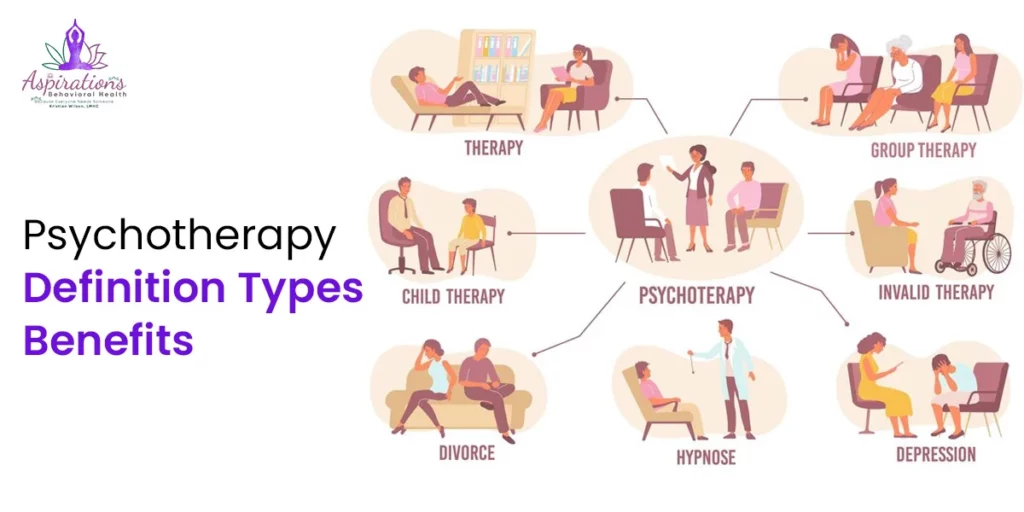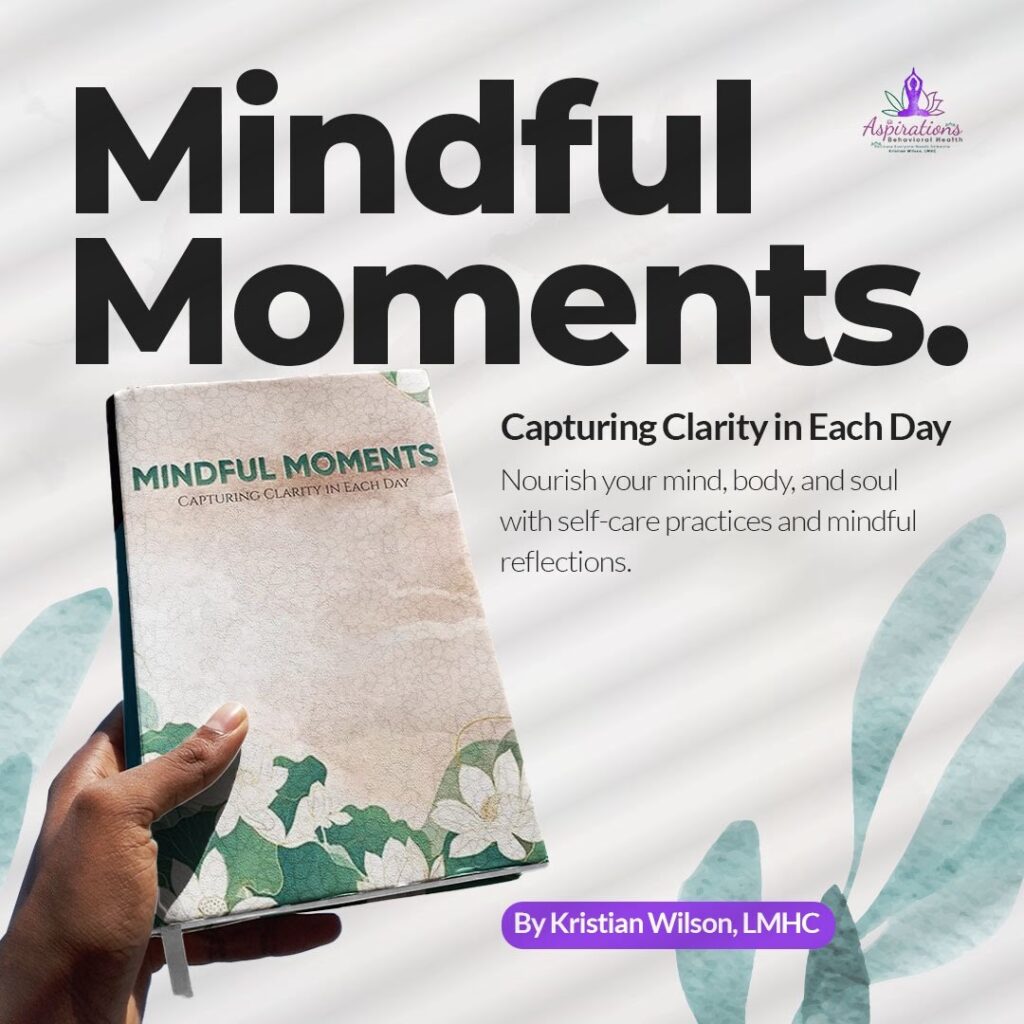As we uncover the complex realm of psychotherapy, we will go on a voyage of self-discovery. Psychotherapy is a collaborative practice that goes beyond standard counseling and involves an individual and a qualified therapist. Discover the several forms of psychotherapy—from CBT to psychodynamic techniques—each providing unique insights and instruments for individual development. Learn about the many advantages, such as better mental health, better-coping mechanisms, and the growth of a more profound awareness of oneself and others.
Takeaway
- Unlock self-awareness, navigate challenges, and foster resilience through diverse therapeutic approaches tailored to individual needs.
- Experience improved mental well-being with psychotherapy’s transformative tools and strategies, fostering a balanced and resilient mindset.
- Explore a range of psychotherapy types, each offering unique insights, from individual and family therapy to gestalt and exposure therapy.
- Psychotherapy catalyzes positive change, fostering healthier relationships, improved coping skills, and emotional well-being.
- Delve into the enriching world of psychotherapy, where self-exploration and understanding pave the way for a more connected and fulfilling life.
What is Psychotherapy?
Psychotherapy is a therapeutic conversation. It’s a safe, confidential space where individuals can explore their thoughts, feelings, and behaviors with a trained professional. Through this collaborative process, psychotherapy aims to alleviate emotional distress, address specific issues, and foster personal development. It’s not about receiving advice but gaining self-awareness and developing strategies for a more fulfilling life.
What’s the Difference Between Psychotherapy, Counseling, and Therapy?
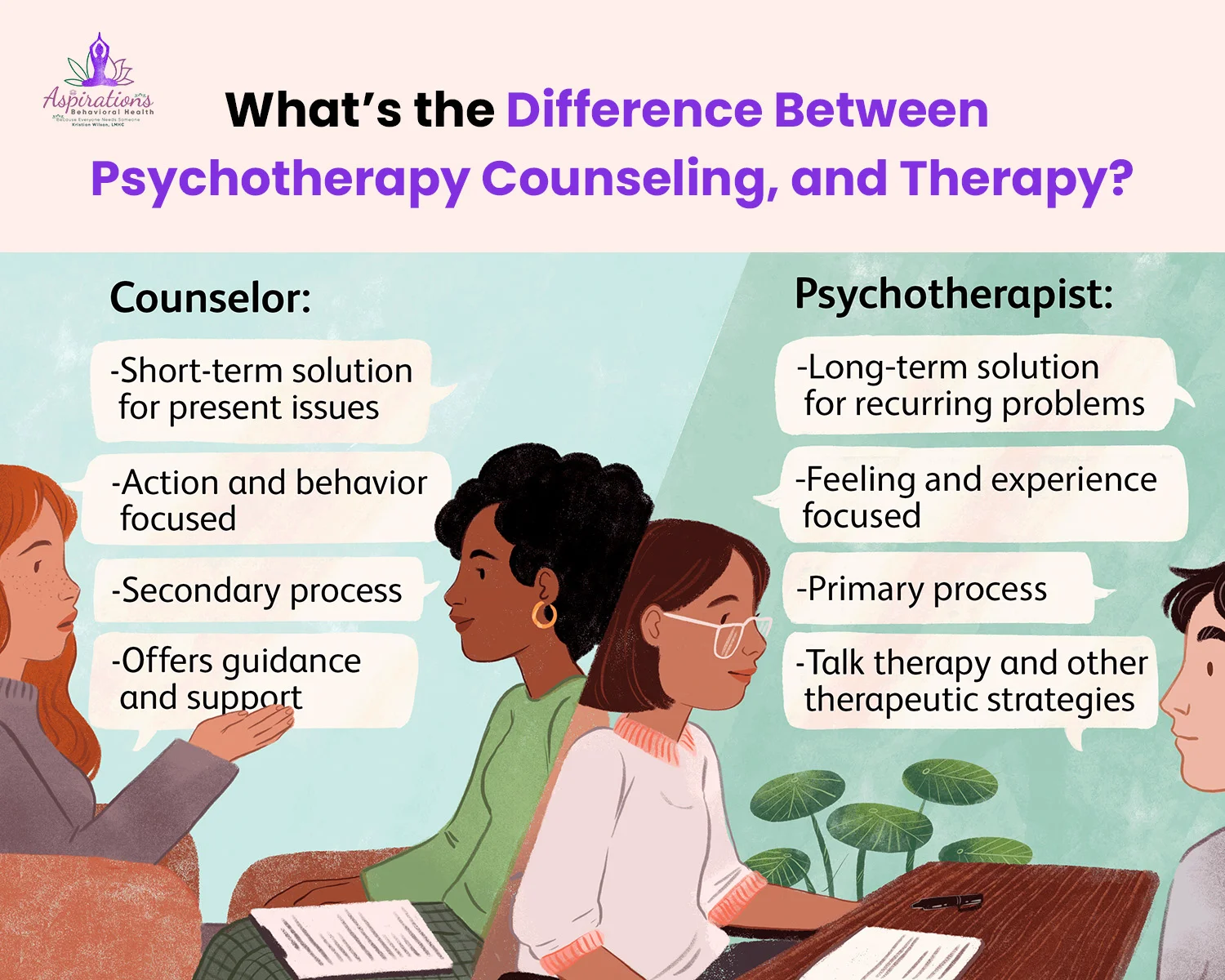 While the terms are often used interchangeably, distinctions exist. Psychotherapy typically delves into deeper, longstanding issues, uncovering the root causes of emotional challenges. Counseling focuses on specific problems and practical solutions, offering guidance on coping strategies. The term “therapy” is an umbrella encompassing both psychotherapy and counseling. Understanding these differences empowers individuals to choose the best approach to their needs, fostering a tailored and effective therapeutic journey.
While the terms are often used interchangeably, distinctions exist. Psychotherapy typically delves into deeper, longstanding issues, uncovering the root causes of emotional challenges. Counseling focuses on specific problems and practical solutions, offering guidance on coping strategies. The term “therapy” is an umbrella encompassing both psychotherapy and counseling. Understanding these differences empowers individuals to choose the best approach to their needs, fostering a tailored and effective therapeutic journey.
7 Types Of Psychotherapy
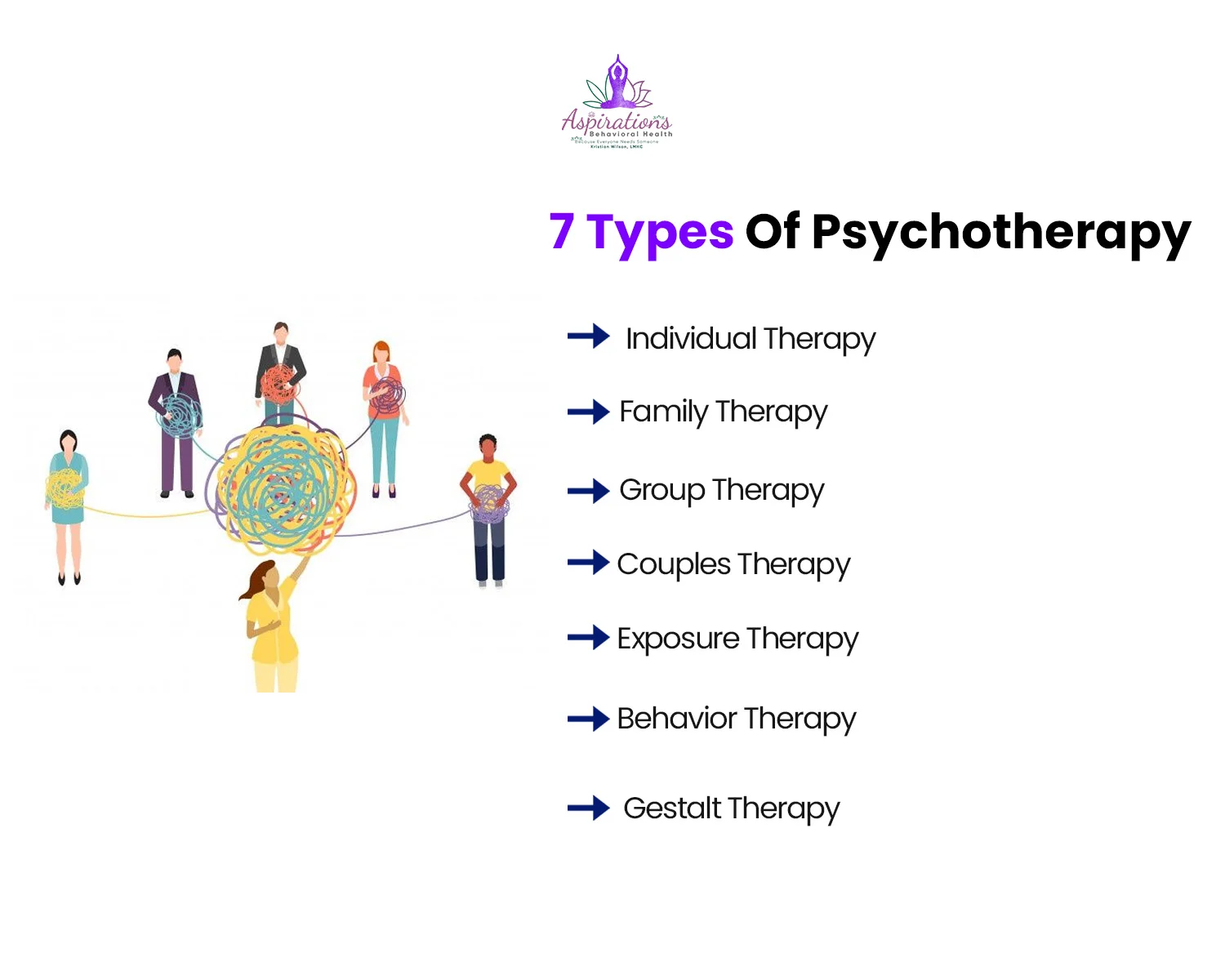 Explore the diverse landscape of psychotherapy through these seven distinct approaches. Each type offers a unique path toward improved mental well-being, from individual counseling delving into personal growth to family therapy strengthening familial bonds. Dive into the transformative world of psychotherapy, tailored to meet various individual and relational needs.
Explore the diverse landscape of psychotherapy through these seven distinct approaches. Each type offers a unique path toward improved mental well-being, from individual counseling delving into personal growth to family therapy strengthening familial bonds. Dive into the transformative world of psychotherapy, tailored to meet various individual and relational needs.
1. Individual Therapy
Individual therapy, or one-on-one counseling, provides a personalized space for self-exploration. Tailored to individual needs, it delves into personal challenges, emotional well-being, and personal growth, fostering a deeper understanding of oneself.
2. Family Therapy
Family therapy addresses familial dynamics, enhancing communication and resolving conflicts. It aims to strengthen bonds, offering a collaborative space for families to navigate challenges and nurture healthier relationships.
3. Group Therapy
Group therapy fosters a supportive community for individuals sharing similar concerns. It provides a platform for mutual support, validation, and diverse perspectives, promoting personal growth within a collective setting.
4. Couples Therapy
Couples therapy focuses on improving communication and resolving conflicts within romantic relationships. It offers a safe space for couples to navigate challenges, fostering a stronger and more resilient partnership.
5. Exposure Therapy
Exposure therapy tackles anxiety by gradually exposing individuals to feared situations. It helps in overcoming phobias and anxiety disorders, promoting gradual adaptation and reducing distressing reactions.
6. Behavior Therapy
Behavior therapy targets specific behaviors, aiming to modify and replace them with healthier alternatives. It employs techniques like reinforcement and conditioning to address various mental health concerns effectively.
7. Gestalt Therapy
Gestalt therapy emphasizes the present moment and personal responsibility. It encourages self-awareness and understanding by focusing on the holistic experience, integrating thoughts, emotions, and behaviors for enhanced well-being.
7 Benefits Of Psychotherapy?
Unlock a spectrum of benefits with psychotherapy. Psychotherapy fosters emotional resilience, from gaining insights into oneself to building coping skills. It provides a safe space for addressing specific challenges, reducing symptoms of mental health conditions, and promoting personal growth. Through a collaborative process, individuals experience improved self-esteem, enhanced relationships, and a more profound understanding of their thoughts, emotions, and behaviors. Psychotherapy empowers individuals to navigate life’s complexities with newfound strength and resilience.
1. Improve Mental Health
Psychotherapy is vital for mental health improvement, offering tailored strategies to address specific concerns and alleviate symptoms, fostering a more balanced and resilient state of mind.
2. Enhance Emotional Well-being
Psychotherapy enhances emotional well-being, equipping individuals with practical tools to manage and regulate emotions, fostering a more stable and positive emotional state.
3. Improve Relationships
Psychotherapy enriches relationships by addressing communication barriers, fostering understanding, and promoting healthier interactions within families, friendships, and romantic partnerships.
4. Increase Self-awareness
Through self-exploration, psychotherapy increases self-awareness, allowing individuals to better understand their thoughts, emotions, and behaviors, fostering personal growth and resilience.
5. Improved Communication Skills
Psychotherapy refines communication skills, empowering individuals to express themselves more effectively. This enhancement fosters stronger connections, reduces misunderstandings, and promotes healthier interactions in various relationships.
6. Increased Resilience
By addressing challenges head-on, psychotherapy strengthens emotional resilience. Individuals learn to navigate difficulties, adapt to life changes, and bounce back from setbacks with newfound strength and resilience.
7. Boosts Self-esteem
Psychotherapy boosts self-esteem by fostering positive self-perception and providing tools to overcome self-doubt. It empowers individuals to confidently embrace their strengths and achievements, cultivating a healthier self-worth.
What conditions does psychotherapy help manage?
 Psychotherapy is a versatile and effective intervention for managing various mental health conditions. It proves beneficial for anxiety disorders, depression, stress, and trauma-related disorders. Individuals grappling with relationship issues, grief, or life transitions also find support through psychotherapy. Moreover, it is instrumental in addressing specific behavioral issues, fostering coping skills, and promoting overall emotional well-being.
Psychotherapy is a versatile and effective intervention for managing various mental health conditions. It proves beneficial for anxiety disorders, depression, stress, and trauma-related disorders. Individuals grappling with relationship issues, grief, or life transitions also find support through psychotherapy. Moreover, it is instrumental in addressing specific behavioral issues, fostering coping skills, and promoting overall emotional well-being.
Whether tackling phobias, obsessive-compulsive disorder, or personality disorders, psychotherapy provides a tailored approach, empowering individuals to navigate challenges, build resilience, and lead fulfilling lives. Always consult a mental health professional to determine the most suitable therapeutic approach for specific conditions.
Family Issues
Psychotherapy provides a supportive space to address complex family dynamics, fostering understanding and communication to strengthen familial bonds.
Marriage Problems
Therapeutic intervention offers couples tools to navigate challenges, improve communication, and rebuild trust, fostering healthier and more resilient marriages.
Child and Adolescent Issues
Psychotherapy assists young individuals in navigating challenges, providing a safe space to express emotions, enhance coping skills, and foster personal growth.
Anxiety
Therapeutic techniques help individuals manage anxiety, offering coping strategies, behavioral interventions, and supportive space to address underlying concerns.
Depression
Psychotherapy provides a safe and empathetic environment to explore the roots of depression, offering tools to manage symptoms and foster a more positive outlook.
Low Self-esteem
Therapy addresses self-esteem issues by exploring underlying beliefs, fostering self-acceptance, and providing tools to build a more positive self-image.
Life Transitions
Psychotherapy supports individuals navigating significant life changes, offering coping strategies, emotional support, and a space to explore the transition challenges.
Relationship Concerns:
Therapy helps address relationship challenges by enhancing communication, fostering understanding, and providing tools for building healthier and more satisfying connections.
Gay, Lesbian, and Bisexual Concerns
Psychotherapy offers a supportive and affirming space for individuals in the LGBTQ+ community, addressing unique challenges and fostering self-acceptance.
Discrimination
Therapy provides individuals facing discrimination with coping strategies, emotional support, and tools to navigate challenges while fostering resilience and self-empowerment.
Loss and Grieving
Psychotherapy supports individuals coping with loss, offering a safe space to navigate grief, express emotions, and find meaning in the grieving process.
Eating Disorders
The therapeutic intervention addresses the complex issues associated with eating disorders, offering support, behavioral strategies, and tools for fostering a healthier relationship with food.
Health-related Issues
Psychotherapy provides emotional support and coping strategies for individuals facing health-related challenges, fostering resilience and improving overall well-being.
Sexual Harassment
Therapy offers a confidential and supportive space for individuals dealing with the impact of sexual harassment, addressing emotional and psychological effects while fostering healing.
Alcohol Abuse
Psychotherapy addresses the root causes of alcohol abuse, offering tools for recovery, coping strategies, and a supportive environment to foster positive change.
Domestic Violence
Therapy provides a safe and supportive space for individuals affected by domestic violence, addressing trauma, offering coping strategies, and fostering empowerment.
Substance Abuse
Psychotherapy supports individuals in overcoming substance abuse, addressing underlying issues, providing coping strategies, and fostering a path to recovery.
Conflict Resolution
Therapeutic interventions equip individuals with practical conflict resolution skills, enhancing communication and fostering healthier relationships in various aspects of life.
How to Know If You Need Psychotherapy
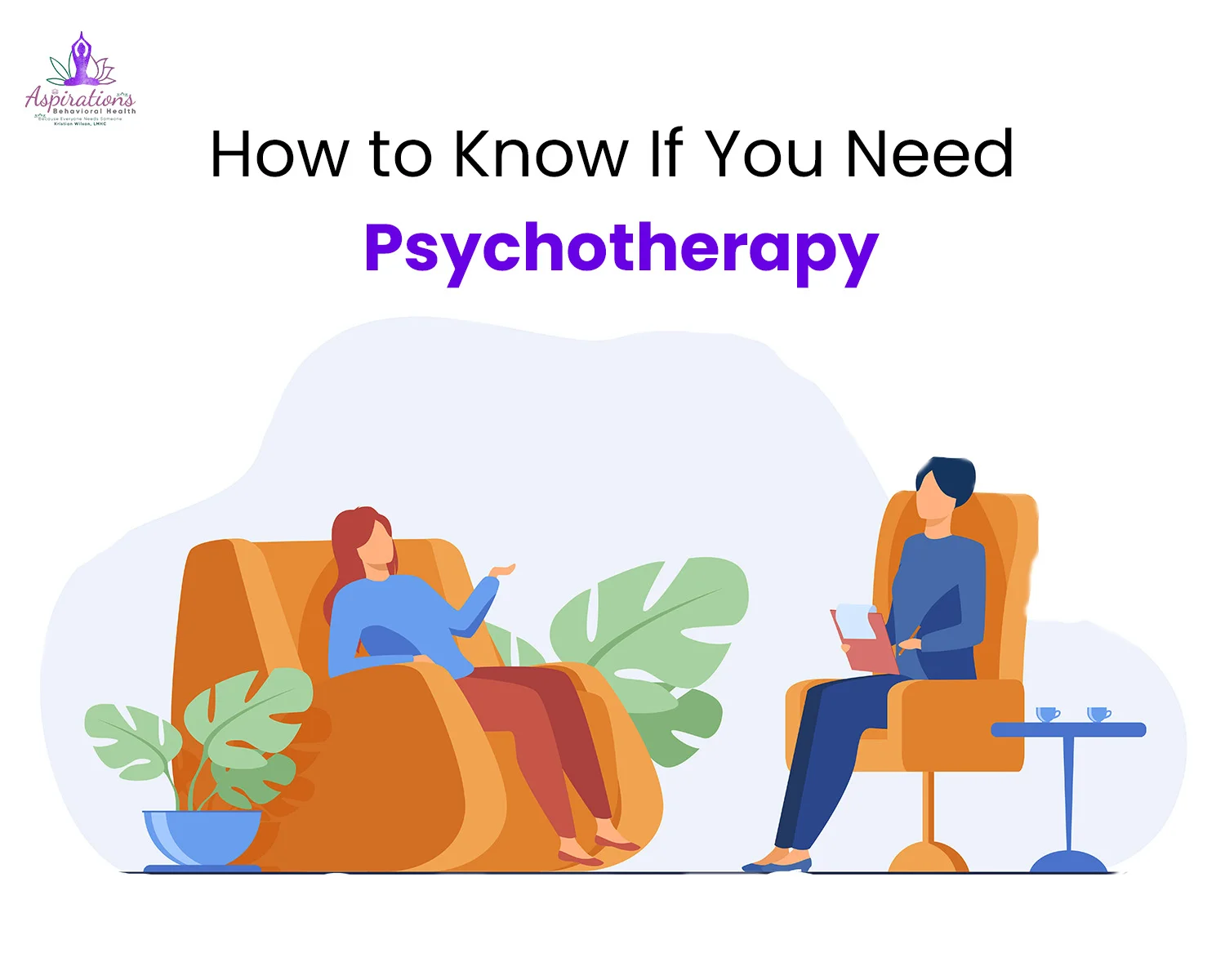
Persistent Emotional Distress
If you find yourself experiencing prolonged emotional distress, such as anxiety, sadness, or overwhelming stress, it may be an indicator that psychotherapy could provide valuable support.
Disruption in Daily Functioning
When emotional challenges start affecting your daily life, including work, relationships, and personal well-being, seeking psychotherapy can offer coping strategies and tools to regain balance.
Difficulty Coping with Life Transitions
Life transitions, whether positive or challenging, can be overwhelming. Psychotherapy can provide a supportive space for coping and adjustment if you find it challenging to navigate changes effectively.
Strained Relationships
Persistent conflicts or challenges in relationships may signal the need for therapeutic intervention. Psychotherapy can offer communication strategies and relational tools to strengthen connections and resolve conflicts.
Overwhelming Grief or Loss
Coping with significant loss or grief can be incredibly challenging. Psychotherapy offers a supportive environment to navigate the grieving process, express emotions, and find meaning in the experience.
Negative Thought Patterns
Persistent negative thought patterns, self-doubt, or feelings of worthlessness may indicate underlying issues. Psychotherapy can help challenge and reframe these thoughts, fostering a more positive mindset.
Lack of Self-Understanding
If you feel disconnected from yourself, struggle with self-identity, or lack a clear understanding of your goals and values, psychotherapy can provide a space for self-exploration, self-awareness, and personal growth.
Why Aspirations Behavioral Health is the Best for Psychotherapy
Discover unparalleled support for your mental well-being at Aspirations Behavioral Health. Our dedicated team of experienced therapists offers personalized and compassionate psychotherapy tailored to your unique needs. With a commitment to fostering a safe and empathetic space, we empower individuals to navigate life’s challenges, improve relationships, and enhance overall mental health.
At Aspirations Behavioral Health, we prioritize your well-being, providing the highest standard of care on your journey to personal growth and resilience. Choose excellence in psychotherapy – choose Aspirations Behavioral Health for transformative and compassionate mental health support.
Aspirations Behavioral Health offers a wide range of services, including:
Online Individual Consultation And Coaching
Online Child And Adolescent Therapy
Conclusion
Psychotherapy isn’t just for those struggling with mental health challenges. It’s an empowering tool for anyone seeking self-discovery, greater well-being, and a more fulfilling life. Whether you’re facing anxiety, navigating personal growth, or simply seeking to understand yourself better, there’s a therapeutic approach tailor-made for your needs.
From managing emotions to strengthening relationships, the benefits of psychotherapy are numerous. Learn to cope with stress, build resilience, and unlock greater self-awareness. Take charge of your well-being and embark on a journey of transformation.
Remember, you’re not alone. Psychotherapy offers a supportive and confidential space to explore your inner world and unlock your full potential. Start your journey today and discover the power of inner peace.


